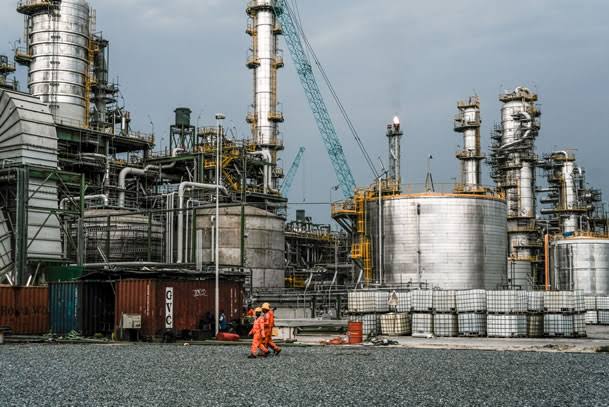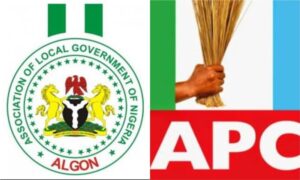Nigeria has been grappling with soaring fuel prices, but a glimmer of hope is on the horizon as petroleum marketers prepare to buy petrol directly from the Dangote Refinery. With the Nigerian National Petroleum Company Limited (NNPC) no longer acting as a middleman, this shift is expected to reduce the cost of fuel for Nigerian consumers, who have been struggling with economic hardship and high energy costs.
This development follows the government’s decision to allow petroleum marketers to bypass NNPC and purchase directly from the newly established Dangote Refinery. But what exactly does this mean for fuel prices in Nigeria, and how soon can consumers expect to see changes at the pump?
In the past, NNPC was the sole distributor of petrol from Dangote Refinery. This meant that petroleum marketers had to buy from NNPC, which added extra fees to the cost of the fuel. As a result, the price consumers paid at the pump was higher due to these additional charges.
However, this is about to change. The Nigerian government recently approved direct sales of petrol from Dangote Refinery to independent marketers. This move ends NNPC’s monopoly as the only buyer and distributor of Dangote petrol, giving marketers the opportunity to bypass the fees imposed by NNPC.
Chinedu Ukadike, the spokesperson for the Independent Petroleum Marketers Association of Nigeria (IPMAN), expressed optimism that this change could lead to a drop in petrol prices. IPMAN, which controls 70% of the filling stations in Nigeria, is eagerly awaiting Dangote’s price template to start purchasing fuel directly.
“We are confident that once Dangote starts selling to us directly, petrol prices will drop below the current NNPC prices. NNPC adds extra costs, which we’ll avoid when buying straight from Dangote,” Ukadike said in an interview.
At present, fuel prices in Nigeria are at an all-time high. In Abuja, NNPC filling stations are selling petrol at N1,030 per liter, while other stations charge between N1,100 and N1,200 per liter. Even the ex-depot prices—the prices marketers pay to buy fuel at the depots before selling to consumers—are between N1,040 and N1,100 per liter. These prices reflect the ongoing economic strain on Nigerians, who have seen fuel prices skyrocket since the removal of the fuel subsidy in June 2023.
Ukadike explained that the removal of NNPC’s markup will make petrol more affordable. He also mentioned that IPMAN is expecting to meet with Dangote Refinery soon to finalize the deal and get clarity on the pricing structure.
“We don’t earn salaries like government workers; we survive on profit margins. Lower prices from Dangote will allow us to sell petrol cheaper than NNPC,” Ukadike added.
Despite the optimism, there’s still a wait for Dangote Refinery’s official pricing for direct sales. According to Billy Gillis-Harry, the President of the Petroleum Products Retail Outlets Owners Association (PETROAN), marketers are still waiting to hear back from Dangote Refinery about the price template.
“We’ve sent a formal request for direct purchases, but so far, there’s no confirmation on how much they’ll charge. It’s impossible for us to start purchasing petrol from them without knowing the price,” Gillis-Harry told DAILY POST.
This uncertainty has left marketers in a holding pattern, even though they are eager to begin direct purchases. Until Dangote Refinery confirms the cost per liter, they can’t move forward with their plans.
While petroleum marketers are optimistic, there is some skepticism about how much the prices will drop. Olabode Sowunmi, an oil and gas expert, noted that Dangote Refinery may not offer petrol at a significantly lower price than NNPC. He explained that while the refinery could help reduce dependence on fuel imports, it wasn’t necessarily built to sell petrol at cheap rates domestically.
“It’s important to understand that Dangote Refinery is a business. While local production may cut down on some costs, it doesn’t mean Nigerians will suddenly see petrol prices drop drastically,” Sowunmi said.
Additionally, the initial stages of Dangote’s petrol distribution haven’t led to significant price drops. Many consumers are concerned that even with direct sales, petrol prices might not fall enough to bring relief from the current economic strain.
Fuel prices are just one part of Nigeria’s larger economic struggles. Since President Bola Ahmed Tinubu’s decision to remove the fuel subsidy in June 2023, petrol prices have risen from N238 to over N1,000 per liter in some areas. This increase has placed a heavy burden on Nigerians, especially with the rising costs of other essential goods.
The cost of diesel, cooking gas, and electricity has also surged. For example, diesel prices have shot up to N1,406 per liter, while cooking gas now costs N15,552 for a 12-kilogram cylinder. Electricity tariffs have also increased by 240%, further straining household budgets.
The rising energy costs have worsened the economic hardship faced by millions of Nigerians, many of whom are also dealing with high food prices and currency instability. The Nigerian Electricity Regulatory Commission’s recent hike in electricity tariffs, combined with ongoing power grid failures, has added to the country’s power sector woes.
Despite the challenges, there is hope that direct sales from Dangote Refinery could bring some relief. By eliminating NNPC’s role as the middleman, marketers may be able to sell petrol at more affordable prices. However, until Dangote releases its price template and sales begin, the full impact remains uncertain.
In the meantime, President Tinubu remains confident that Nigeria’s economic struggles can be overcome. Speaking at the Nigerian Economic Summit Group (NESG), he assured Nigerians that with the right policies and cooperation, the country will get through this difficult period.
“The challenges before us are tough, but they can be solved. We just need the right policies and the will to work together,” Tinubu said through Vice President Kashim Shettima.
For now, Nigerians are left waiting and hoping that the promise of direct petrol sales from Dangote Refinery will lead to lower fuel prices and ease the ongoing economic pressure.







